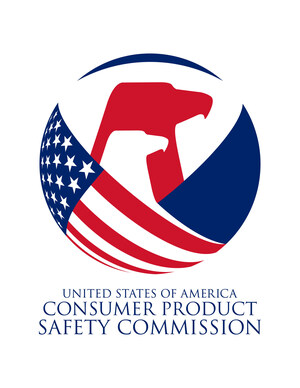
WASHINGTON, Jan. 20, 2011 /PRNewswire-USNewswire/ -- The U.S. Consumer Product Safety Commission (CPSC) and the United States Fire Administration (USFA) are urging consumers to play it safe as winter weather blankets the United States.
(Logo: http://photos.prnewswire.com/prnh/20030904/USCSCLOGO)
According to USFA, home fires spike in winter months. Cooking and home heating are the leading causes of residential building fires during the winter. The risk of fires also increases with the use of supplemental heating, such as space heaters.
CPSC estimates that home heating was associated with an average of 33,300 fires and 180 fire deaths per year from 2005 to 2007.
Carbon monoxide (CO) is also a serious threat in the winter months. Any fuel-burning appliances in the home, including furnaces and fireplaces, are a potential CO source. Carbon monoxide is called the "invisible killer," because it is an odorless, colorless and poisonous gas.
There has been an increasing trend in unintentional, non-fire CO deaths associated with consumer products since 1999. CPSC staff estimates there were 184 CO poisoning deaths on average per year from 2005-2007 compared to 122 deaths per year from 1999-2001. Since 1999, the majority of CO deaths have been associated with heating systems and portable generators.
Smoke and carbon monoxide alarms are an important line of defense in the home, and they give consumers valuable escape time. About two-thirds of fire deaths occur in homes with no smoke alarms, or in homes where consumers have removed the alarm's batteries or where the batteries are dead. Recently, there were tragic deaths in homes where alarms could have made a difference:
- In Citra, Fla., a fire killed five children on November 8. Their home did not have smoke alarms.
- In Penfield, N.Y., a 54-year-old man died of CO poisoning in November. Prior to his death, the home's CO alarms reportedly beeped and were removed from the house.
CPSC and USFA recommend that in addition to having working smoke and CO alarms, consumers should follow these safety tips to prevent fires and CO poisoning:
Preventing Fires
- Place space heaters on a floor that is flat and level. Do not put space heaters on rugs or carpets. Keep the heater at least three feet from bedding, drapes, furniture, and other flammable materials; and place space heaters out of the flow of foot traffic. Keep children and pets away from space heaters.
- To prevent the risk of fire, NEVER leave a space heater on when you go to sleep or place a space heater close to any sleeping person. Turn the heater off when you leave the area. See CPSC's electric space heater safety alert for more space heater safety tips.
- Never use gasoline in a kerosene space heater. Even small amounts of gasoline mixed with kerosene can increase the risk of a fire.
- Have fireplace flues and chimneys inspected for leakage and blockage from creosote or debris every year.
- Open the fireplace damper before lighting a fire, and keep it open until the ashes are cool. An open damper may help prevent build-up of poisonous gases inside the home.
- Store fireplace ashes in a fire-resistant container, and cover the container with a lid. Keep the container outdoors and away from combustibles. Dispose of ashes carefully, keeping them away from dry leaves, trash or other combustible materials.
Preventing CO poisoning
- Schedule a yearly professional inspection of all fuel-burning home heating systems, including furnaces, boilers, fireplaces, wood stoves, water heaters, chimneys, flues and vents.
- NEVER operate a portable gasoline-powered generator in an enclosed space, such as a garage, shed, or crawlspace, or in the home.
- Keep portable generators as far away from your home and your neighbors' homes as possible – away from open doors, windows or vents that could allow deadly carbon monoxide into the home.
- When purchasing a space heater, ask the salesperson whether the heater has been safety-certified. A certified heater will have a safety certification mark. These heaters will have the most up-to-date safety features. An unvented gas space heater that meets current safety standards will shut off if oxygen levels fall too low.
- Do not use portable propane space heaters indoors or in any confined space, unless they are designed specifically for indoor use. Always follow the manufacturer's directions for proper use.
- Never use gas or electric stoves to heat the home. They are not intended for that purpose and can pose a CO or fire hazard.
The U.S. Consumer Product Safety Commission is charged with protecting the public from unreasonable risks of injury or death associated with the use of the thousands of consumer products under the agency's jurisdiction. Deaths, injuries and property damage from consumer product incidents cost the nation more than $800 billion annually. The CPSC is committed to protecting consumers and families from products that pose a fire, electrical, chemical, or mechanical hazard. CPSC's work to ensure the safety of consumer products - such as toys, cribs, power tools, cigarette lighters, and household chemicals – contributed to a significant decline in the rate of deaths and injuries associated with consumer products over the past 30 years.
Under federal law, it is illegal to attempt to sell or re-sell a recalled product.
To report a dangerous product or a product-related injury, call CPSC's Hotline at (800) 638-2772,
teletypewriter at (800) 638-8270, or visit www.cpsc.gov/talk.html. Consumers can obtain this press release and recall information at www.cpsc.gov. To join a free e-mail subscription list, please go to
CPSC Hotline: (800) 638-2772 |
|
CPSC Media Contact: (301) 504-7908 |
|
USFA Media Contact: (301) 447-1853 |
|
SOURCE U.S. Consumer Product Safety Commission






Share this article